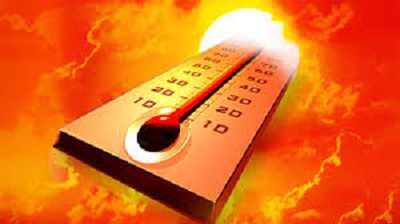ORANJESTAD – During the past few days, very high temperatures, extreme heat and strong sunlight was noted. For the following days, Aruba will continue experiencing this, which can be dangerous for our health. While it is not possible to combat this natural phenomenon, we can take action to protect ourselves and others and prevent unwanted consequences presented by the extensive heat.
According to the Health Department of Aruba, DVG, we are experiencing a heat wave which is having an effect on people and animals. On people it has an effect particularly on those suffering for chronic illness like diabetes, high blood pressure or asthma, but also those working outside in work that is physically demanding. Other groups at risk are elderly people, babies, small children, overweight and obese people. The heat can cause dehydration, heat stroke, high blood pressure, headache, tiredness, dizziness, nausea, vomiting, muscle cramps and even a heart attack when a person remains in high temperatures for a long time.
The Department of Public Health advices for the following days to drink plenty of water, at least two liters per day; use sun protection SPF 30 or higher; wear sunglasses, cap or hat, light-colored clothing preferably made from linen or cotton, and avoid hot beverages and drinks containing caffeine or sugar during the hottest hours, which are between 11am to 2pm.
Children, people with illness and the elderly are the most vulnerable to this heat. It is very important to check on them regularly and help them keep their bodies fresh in order to keep their temperature down, and hydrate them with enough liquids to prevent a possible heatstroke, which is a very delicate condition where the body stops sweating. The body temperature continues raising above 40 degrees Celsius and this affects the control center that regulates the body temperature in our brain.
Symptoms of a heatstroke are:
High body temperature in a short time;
Dry and red face and neck;
No longer sweating;
Accelerated heartbeat;
Headache;
Confused state of mind and can faint;
Can begin vomiting or having diarrhea.
What to do in case of a heatstroke
Find medical assistant right away by calling 911;
Keep the person calm and in a shaded and cool area;
Loosen the clothes on their body;
Cool the body with a wet towel or cloth using cold or tap water;
Place an icepack under the arms, on the neck, back, on the stomach and/or between the legs;
If the person is conscious, let them drink lukewarm water.
Please remember to protect yourself from the sun and the heat by staying out of the sun in the hottest hours of 11am-2pm, drink plenty of liquids and wear sun-protecting clothing and SPF!




















